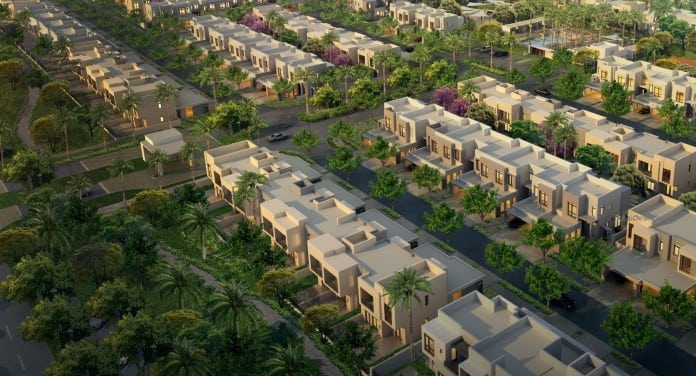
Affordability wasn’t written into Dubai’s design brief. The ‘build it and they will come’ mentality saw developers race to fill the desert with glitzy skyscrapers, transforming the fortunes of the city in two short decades.
But tightening economic conditions are contributing to a more affordable future for Dubai in all sectors of the real estate market.
“Luxury and glitz and glamour was Dubai’s original model for success but the government now recognizes the need to provide more affordable real estate product to ensure the city remains competitive,” says Craig Plumb, head of research, JLL MENA. “The less bullish business environment is forcing some office tenants to become more cautious and cost conscious.”
Landlords are having to work hard to retain office tenants. Incentives such as more attractive lease terms, rent-free periods and fit-out contributions are among the deals that would have been unheard of even a year ago, according to Plumb.
Some developers have paused the office component of new projects while others are responding to the changing conditions with space that better suits tenants’ needs: “Gone are the days of form over function,” says Plumb.
“Developers are building with the tenant’s budgets and business needs in mind and what they want is fairly traditional but functional office buildings.”
Budget-conscious buyers
The residential market has seen more emphasis on affordability over the past few years as the shortage of affordable housing emerged as one of the Emirates’ most pressing economic challenges, making it harder to attract middle income workers.
A surge in the young and middle-income population is driving demand for smaller, more affordable homes and this is now translating into sales. Over 80 percent of transactions in 2017 were for prices below AED 2 million ($545,000), with almost half below AED 1 million ($272,000), as the number of sales in the luxury sector declined.
Almost 80 percent of the new projects competed over the past year have been apartments. While prices and rents have fallen across the market, villa properties have seen the biggest drop.
While budget-conscious buyers are benefiting from falling prices and more flexible payment schemes, plans are afoot to reboot the market which has fallen 15-20 percent since its peak in 2014. Dubai’s Real Estate Regulatory Agency (RERA) has floated the idea of tightening the regulations on off-plan sales, with developers may be required to contribute 50 percent of the total construction cost of any project into an Escrow account before launching pre-sales.
Meanwhile, Dubai’s retail sector is going through a tough patch; it has suffered a sharp decline in rents in all but the most popular malls in recent months. Even the once thriving restaurant scene is coming under pressure with some operators closing down newly opened outlets.
“Retail space is under pressure globally but Dubai is feeling the effects harder than most cities,” says Plumb. “Food and Beverage was the go-to for Dubai retail and the strongest performing sector but now space is overwhelmingly being let in the tenants’ favor.”
The emphasis on affordability is also being seen in the hotel sector, with more operators are focusing on the 3-star segment of the market to meet growing demand, especially with government ambitions to raise visitor numbers to 20 million a year by 2020.
“Dubai continues to see more openings in both the midscale and upscale segments with increasing exposure from major international operators as well as local players,” says Plumb. “We are also seeing the growth of short term rental platforms such as Airbnb as the city seeks to broaden its tourism base beyond its previous focus on the five star market.”
A more affordable future
While Dubai’s real estate sector is facing cyclical challenges, Plumb believes the structural changes being experienced are driven by more than just short-term economic considerations.
“The way we’ve been talking about the broadening of the market and the increased focus on affordability is the ‘new normal’ as a greater sense of financial realism enters the market,” Plumb says.
“The Dubai real estate market only really opened up in early 2000s, following new laws to allow foreigners to own freehold property. The market is now maturing in ways we’ve seen in Asian cities such as Singapore, Hong Kong and Shanghai.”
Furthermore, Dubai remains a key business hub in the Middle East with globally competitive economic sectors from finance to trade and logistics, not to mention being a major tourist destination.
“While questions remain over oversupply, particularly in the residential and retail sectors and the market has definitely moved in the favor of tenants in recent years there remain opportunities for developers, landlords and operators who can adapt to Dubai’s changing market conditions,” concludes Plumb.























![The Square at Nad Al Sheba Gardens Now Open hope tax season treated you well! Just checking in—ready to refocus on growing your business? I remember how we discussed scaling your [specific aspect of their business, e.g., online presence] but paused due to time constraints. We now offer a streamlined 6-month plan that delivers real results without adding to your workload. Let me know if you'd like to chat—I’d love to help you pick up where we left off!](https://www.dubaichronicle.com/wp-content/uploads/2024/11/The-Square-5-218x150.jpg)








